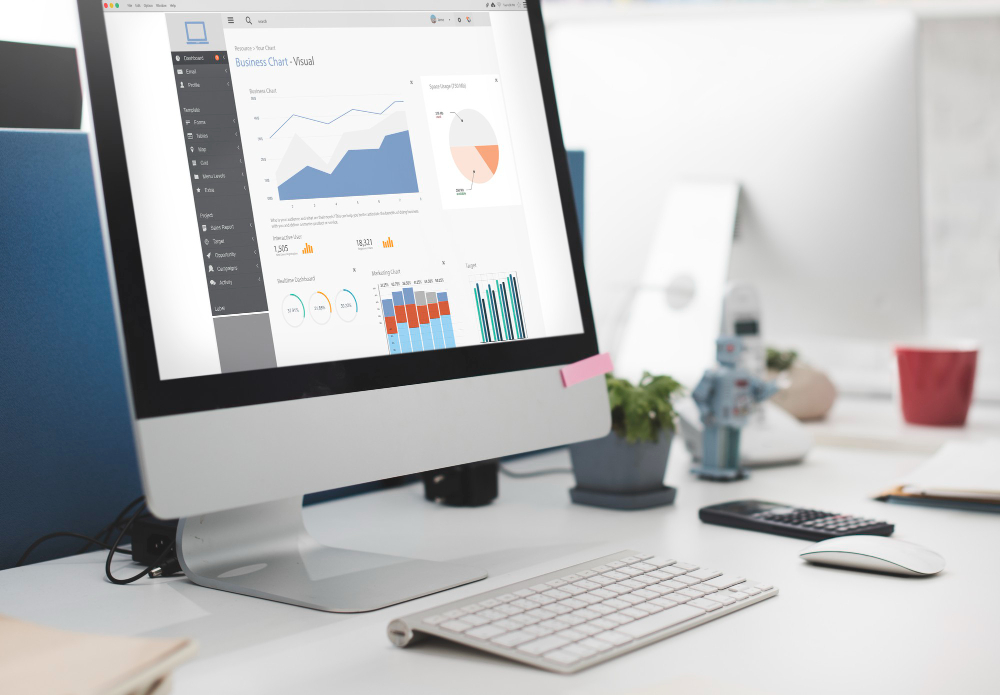Proxies For Web Scraping: How To Choose The Best Option
Web scraping (sometimes referred to as web harvesting or data extraction) is an essential tool for organizations, especially commercial ones, to gain valuable insights into their target audience and market changes. It allows you to use publicly available data in your niche, which you can then segment and analyze to inform business decisions.
Table of Contents
While harvesting publicly available data is perfectly legal in the U.S. and many parts of the world, many site owners don’t allow it. They can detect that you’re using web scraping software through the IP address and behavior. Anything they deem as data harvesting can result in the site blocking your scraper’s IP address, preventing it from accessing the site.
Web Scrapers and APIs

You can harvest data from the web in two ways: a dedicated web scraping tool or the website’s API.
APIs are generally much more efficient and easier to use. They have a limited scope and can work only with the specific websites, programs, or databases they were designed for. The resulting data is structured and organized, minimizing the need for individual research. Scraping Robot’s customer-focused API automates the data scraping process through powerful infrastructure and industry expertise, saving you even more time.
Dedicated web scrapers, on the other hand, allow you more freedom and variety in the format and types of data you can extract. They tend to be more complex, especially for a beginner user, but you can use them to scrape virtually any site on the web.
Since APIs are usually offered directly by the website, you’re less likely to have your IP address blocked. The same can’t be said for standard web scrapers. However, you may be able to get around web scraping restrictions and IP address blocks by routing your scraper connection through a proxy server.
What Are Proxy Servers?

Proxy servers are web traffic rerouting tools. They’re often used in cybersecurity to mask the client’s IP address and maintain their anonymity. It sits between the user and their target connection, preventing them from directly communicating with the sites or applications they’re visiting online.
What are proxies for web scraping?
You can pair almost any proxy with your web scraper to enhance the process. Proxies are an easy and efficient way to scrape data from e-commerce sites without getting blocked. The same functionality used for cybersecurity can be co-opted for web scraping by disguising the IP address of your web scraper.
Your scraping tool can rotate between multiple proxy servers and IP addresses and continue scraping from a site long after its first IP address gets blocked. Proxies will also enable you to divide your connection and simultaneously scrape data from several sites.
Types of Proxy IP

There are three common types of proxies that differ based on the IP address they offer: data center proxies, mobile proxies, and residential proxies.
Data center proxies
Data center proxies work on a large scale. They take in multiple connection requests and reroute them to their desired destinations, all carrying the same IP address. You can rent several data center IP addresses from a proxy company to use with your web scraping.
They’re the cheapest variety and can benefit a large-scale scraping project on a strict budget. However, since they’re widely used and aren’t owned by an ISP, they tend to get blocked by websites compared to other proxies.
Mobile proxies
Mobile IP address proxies are assigned to mobile devices instead of residential IP addresses or VPN connections. This type redirects your web traffic to a mobile data network, masking your IP address and hiding the fact that you’re using a cellular network-connected mobile device.
While mobile proxies are incredibly beneficial for web scraping, especially for web data shown only to mobile device users, they’re quite costly.
Residential proxies
Residential proxies use the IP addresses of actual residential homes, issued by ISPs. A residential proxy allows you more control in accessing geo-locked data from e-commerce sites by making your scraper look like a normal user located in that area.
Residential addresses are the least likely to get blocked by sites as long as they’re used responsibly. As for price, they fall right in the middle between data center and mobile proxies, making them the preferred option for many amateur and professional web scrapers.
Are Proxies Safe for Web Scraping?

Web scraping is a completely legal and safe procedure as long as it doesn’t infringe on local privacy laws. When it comes to routing your scraping connection through a proxy, online safety depends on the proxy server you’re using.
Free and public-access proxy servers are rarely safe. They’re often unencrypted and could put you at risk during the scraping process. However, private proxies are as safe as the owner makes them. Proxy companies usually offer a number of security layers like encryption and vetting for users, drastically reducing security risks.
How To Choose the Best Proxy for Your Web Scraping Projects

When looking for a proxy service provider, look for proxy providers specializing in web scraping. They’re more likely to be familiar with the landscape and can help you avoid getting blocked. Many proxy providers also offer rotating proxies. You can save on costs by pooling IP addresses and regularly rotating between them rather than manually switching between static IP addresses.
Another aspect you should keep in mind is the price. Proxy prices vary depending on the type, location, quality, estimated uptime, and guaranteed speeds. If you’re scraping large amounts of data, you may want to invest in higher-speed proxies with a more reliable connection to reduce your margin of error and speed up the scraping process.
Look for proxies that integrate seamlessly with the web scraping tools you’re planning on using. Any incompatibility can significantly reduce scraping efficiency and increase the time it takes to scrape each page.
Another important factor to keep in mind is the server’s estimated uptime, as you can’t perform any scraping when the proxy is down. Proxy providers with higher uptime percentages tend to be more expensive but more reliable in the long run.
Round-the-clock technical support is also crucial to figure out any hurdles or issues you may face during the setup and scraping process. Since most proxy providers have offices worldwide, depending on the countries they offer IP addresses in, make sure language isn’t a barrier, and you always have a reliable way of communicating with the support team.
Free Web Scraping Options

Web scraping can technically be done for free, especially on a smaller scale. Many free and open-source web scraping tools exist, such as Pyspider, Webmagic, Node Crawler, and MechanicalSoup. However, they tend to require more skills than their paid counterparts.
As for APIs provided by e-commerce and user-based website, they can be either free or paid, depending on the conditions of the data owner and any restrictions it puts on free vs. paid API data collection. You can use Scraping Robot to get 5,000 free scrapes per month, with access to the API’s full suite of features and capabilities.
You can choose between two pricing options when signing up for the paid version of Scraping Robot. The Business model charges $0.0018 per scrape for data harvesting up to 500,000 scrapes. You can switch to the Enterprise option for more, where you’d pay as low as $0.00045 per scrape.
Using proxies in Python for web scraping
According to IEEE Spectrum, Python was the most used programming language for online web scraping in 2021. It’s also regarded as the best option as it’s compatible with a wide variety of free and paid web scraping tools and APIs.
Python has many beneficial libraries that simplify the process of web scraping. By writing your own data harvesting and parsing code, you can have complete control over the type of information you obtain and accommodate the layouts and types of websites you’re looking to scrape.
Harvest Data With Scraping Robot

Whether you’re an amateur or a professional web scraper, the right tools are necessary to get the job done. Scraping Robot can help you with small-scale scraping projects (up to 5,000 free scrapes) and with business and enterprise-grade projects with hundreds of thousands of data points needed.
Scraping Robot can take care of all the trouble that comes with web scraping, from browser scalability and proxy server management to CAPTCHA solving and handling anti-scraping website updates. Our support team is available 24 hours a day, seven days a week, and we’re ready to answer all your questions.
The information contained within this article, including information posted by official staff, guest-submitted material, message board postings, or other third-party material is presented solely for the purposes of education and furtherance of the knowledge of the reader. All trademarks used in this publication are hereby acknowledged as the property of their respective owners.
